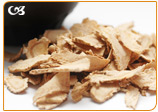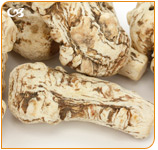What’s the History of Dong Quai for Menopause?
Sure, you’ve heard about other women using Dong quai to relieve their menopausal symptoms, but you’re not convinced. Who’s to say it works better than prescribed medications, or better yet, simple lifestyle changes? Unfortunately, the experts on the matter � medical professionals � have been largely mute on the subject. Precious few studies have been conducted into the effectiveness of Dong quai. But with a little study, you can piece together a picture of the supplement and its effectiveness. Keep reading to find out more.
Dong Quai: A History
 Dong quai’s claim to fame comes from its age-old use in traditional Chinese, Japanese and Korean medicine. All three traditions used the herb in the treatment of women’s health conditions like painful menstruation, pelvic pain, childbirth recovery, and, you guessed it, menopause. It was until the 1800?s that Dong quai left Asia for Europe as a female health supplement. And it wasn’t until recent years that the herb grew in popularity in the treatment of menopause symptoms.
Dong quai’s claim to fame comes from its age-old use in traditional Chinese, Japanese and Korean medicine. All three traditions used the herb in the treatment of women’s health conditions like painful menstruation, pelvic pain, childbirth recovery, and, you guessed it, menopause. It was until the 1800?s that Dong quai left Asia for Europe as a female health supplement. And it wasn’t until recent years that the herb grew in popularity in the treatment of menopause symptoms.
What is Dong Quai Thought to Do?
Dong quai is thought (note: not scientifically verified) to correct hormone imbalances in women during menopause. How does it do this? Some speculate that Dong quai contains phytoestrogens, a plant compound that is thought (again, not verified) to mimic estrogen in the body. If this is, in fact, true, this would mean that Dong quai would relieve menopause, since declines in estrogen are responsible for most of the condition’s symptoms.
What Does Dong Quai Actually Do?
The short answer is nobody knows. The few studies conducted on the supplement were either poorly designed or didn’t use a research pool wide enough to provide verifiable evidence. There’s a lot of chatter about Dong quai out there, but nothing much to back any of the talk up. Somebody should get on that, shouldn’t they?
So... Should You Take It?
 That’s entirely up to you. The U.S. FDA does not strictly oversee herbal supplements, so there is a bit of a �take at your own risk� element to the industry. That said, no serious side effects of Dong quai have been reported beyond headaches and nausea after a slight overdose. As always, if your menopause symptoms have become too much to handle, it is best to speak with your doctor about your options.
That’s entirely up to you. The U.S. FDA does not strictly oversee herbal supplements, so there is a bit of a �take at your own risk� element to the industry. That said, no serious side effects of Dong quai have been reported beyond headaches and nausea after a slight overdose. As always, if your menopause symptoms have become too much to handle, it is best to speak with your doctor about your options.
Click the following link to learn more about Dong quai.



























